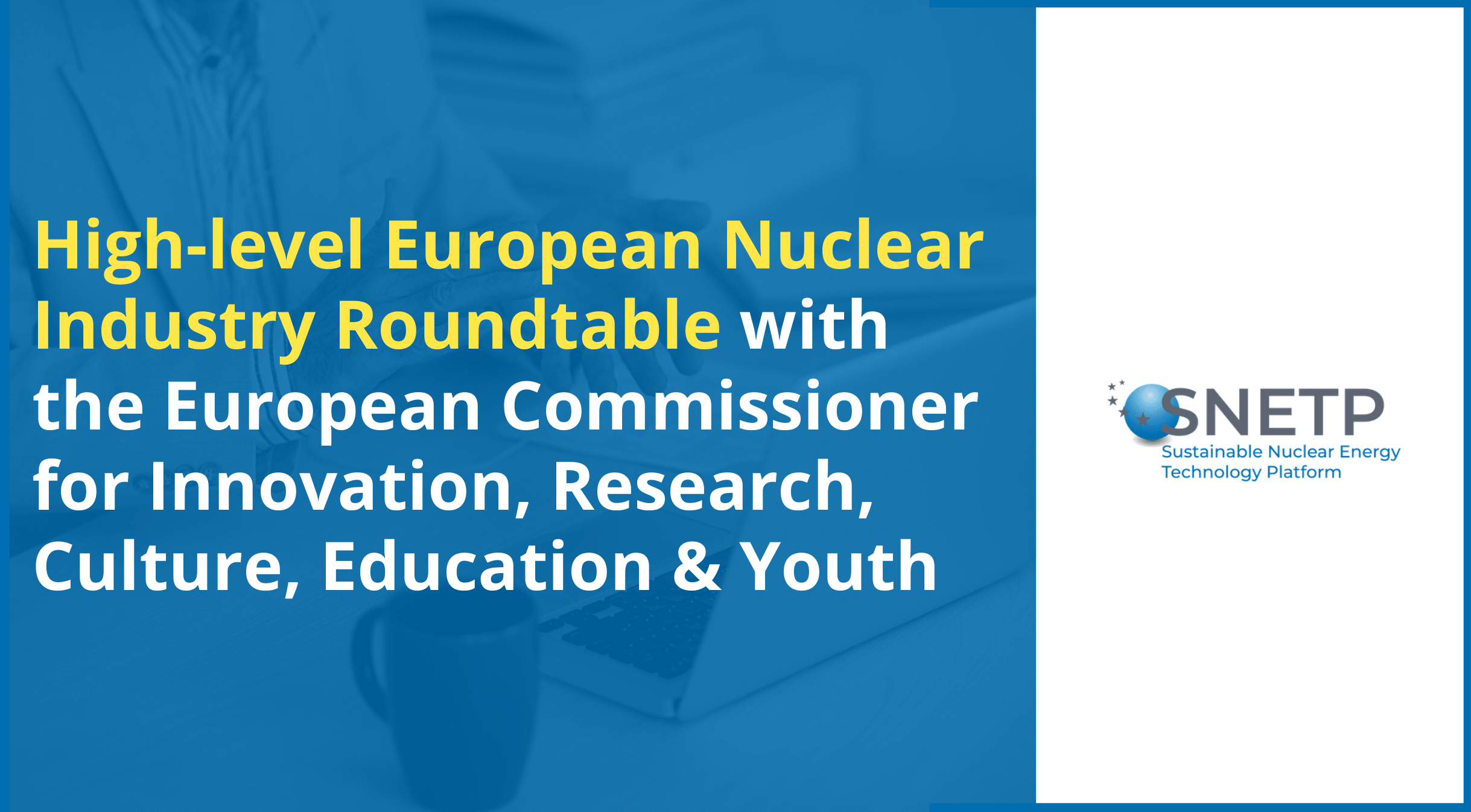On 12 May 2021, SNETP representatives participated in a high-level European Nuclear Industry Roundtable organised by the European Commissioner for Innovation, Research, Culture, Education and Youth, Mariya Gabriel (download agenda). The roundtable focused on future European research and innovation priorities and on attracting talents in the nuclear sector, and was held as a follow up to the meeting of 29 January 2021 between the Commissioner and SNETP and FORATOM representatives.
The meeting revolved around three main topics: challenges and opportunities for the EU nuclear research and innovation, the use of nuclear technologies beyond energy production, and education, skills and infrastructures needed for nuclear research and innovation.
SNETP representatives and the other nuclear research and innovation stakeholders highlighted the key role research and innovation plays in nuclear and other different industry areas. Thus, they requested to develop cross-sectorial user groups from different industry areas to embed best practices between different sectors: medicine (security of supply of radioisotopes and equipment for healthcare), digital (data management, robotics and artificial intelligence), Information and Communication Technology, modular manufacturing (optimisation of nuclear assets and for SMRs), etc.
Nuclear stakeholders also insisted on the need to increase synergies between calls for proposals of the Euratom Research, Horizon Europe and Digital Europe programmes, as well as to showcase Horizon Europe and Euratom project results in instruments like ‘Missions’ and ‘Partnerships’.
Concerning research infrastructures, participants acknowledged that access and capabilities of priority facilities should be strengthened to address key topics such as nuclear safety, waste management and dismantling, and advanced reactor systems (SMRs). Nuclear stakeholders also stressed the importance of consolidating education and training activities at European level and enhancing the collaboration between academia and industry, facilitating cross-sectorial research cooperation and researchers’ mobility across Europe. Another point raised was the need to support innovation accelerators for the demonstration of nuclear products. Finally, participants insisted on the need to promote the transfer of knowledge between nuclear and other industries and applications through enhanced collaboration.
In its monthly newsletter, Mariya Gabriel reported on the roundtable: “I organised, together with the Portuguese Presidency of the EU and the European Parliament, a High-level Nuclear Roundtable with major representatives of nuclear industry and research organisations on the same day. This event was an opportunity to explore the potential of future research and innovation, to increase synergies between nuclear and other sectors, as well as to find joint solutions for attracting and retaining talents in the nuclear sector, so it can contribute to tackling Europe’s challenges”.

